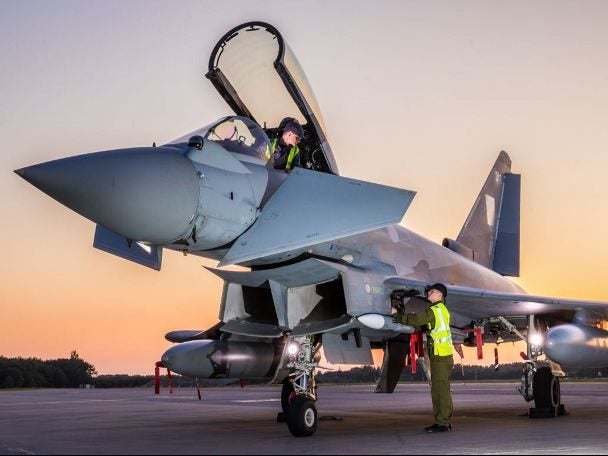
A report from the UK National Audit Office (NAO) has revealed the Ministry of Defence is failing to meet training requirements for aircrew by almost half.
The investigation released today showed that over the past six years – leading up to 2018-19 – the MoD fell short of training requirements by on average 45%, equalling around 125 personnel a year.
Pilots also take far longer to train than in the past. The report says the average training for pilots to operate fast jets takes just over seven years, three years more than the MoD’s aim of 3.9 years.
In response to the findings, an MoD spokesperson said: “The Military Flying Training System (MFTS) is the biggest transformation of UK military aircrew training in a generation and we welcome the NAO report on this programme.
“Although we acknowledge there have been some challenges, the transition to the new system is now well underway and a steady improvement in aircrew throughput is being seen in all areas.”
As of this July, the NAO found that 145 RAF students have been waiting around over 90 weeks to being their training.

US Tariffs are shifting - will you react or anticipate?
Don’t let policy changes catch you off guard. Stay proactive with real-time data and expert analysis.
By GlobalDataThe report reads: “The MoD has long recognised issues with flying training. In 2008, it agreed a 25-year contract with Ascent – a joint venture between two defence contractors, Lockheed Martin and Babcock – to design, introduce and manage a new approach to Phase 2 of its three-phase training process, known as the Military Flying Training System (MFTS). This is when aircrew learn basic flying skills.
“However, aircrew requirements for MFTS have changed since the contract was awarded in 2008. In 2010, the MoD halved its aircrew requirement under the 2010 Strategic Defence and Security Review, which contributed to a six-year delay in introducing the system.”
In 2015, after halving aircrew requirements five years earlier, the MoD decided to acquire new aircraft and increased training requirements. In 2018-19 the requirement was increased by 29 per cent, equating 76 extra personnel.
The report added: “For the MFTS to operate effectively, the MoD and Ascent must both meet their respective contractual obligations. Failure to do so has led to delays and cancellation of courses. As of March 2019, 44 out of the 369 planned training courses (12%) had been cancelled.
“Of these, 28 related to the MoD not fulfilling its responsibilities including not providing enough qualified instructors or students. There were also occasions where the MoD and Ascent have failed to provide sufficient numbers of aircraft.”
The MoD insisted it does have enough aircrew to meet operational requirements, adding that “Student throughput is steadily increasing as the new aircraft, simulators and other state-of-the-art training aids bed in.”
It added that while students are awaiting training they are distributed across the Armed Forces to help fill in other operational needs.



